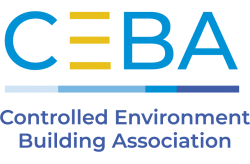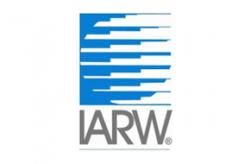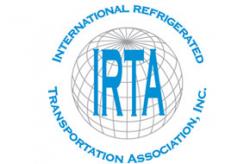A Pool For Second Chances
A largely untapped labor market can help cold storage companies excel.
It is beginning to set in that the labor crisis isn’t a shortlived, pandemic-induced phenomenon likely to right itself in time. Locked in a competition for workers and driven by public outcry for greater social equity, some of the largest private employers in the nation are taking a second look at hiring people who have a criminal record.
Second Chance Catching
On In the cold storage industry, Nor-Am Cold Storage has nearly 25 years of experience with second-chance workers, already employing dozens of people with a criminal record across its locations in five states across the Midwest United States. But, in the case of Nor-Am, it has nothing to do with the labor crisis and everything to do with the company’s culture. “These are people that a lot of companies would write off because of their past issues with drugs, you get a background check on them and they have felonies and maybe they’re on parole or probation,” says Ashley Albers, Vice President of Human Resources at Nor-Am Cold Storage. Roughly 77 million Americans have a criminal record, a number that works out to one in three adults. Advocates for hiring from this labor pool point to high-quality work and strong productivity, as well as lower turnover rates. Despite this, the unemployment rate among previously incarcerated people in the United States, even before the COVID-19 pandemic, was 27% — higher than at any other point in U.S. history, including during the Great Depression. “Business has an important role to play in making it easier for people with criminal backgrounds to get back on their feet,” said JPMorgan Chase & Co. Chairman and CEO Jamie Dimon in a press release announcing formation of the Second Chance Business Coalition (SCBC), which he co-chairs. “Providing a second chance will give people dignity and allow them to provide for their families, and it helps companies like ours expand the number of people we hire to ensure we get the best talent.”
At last count, 35 large employers have joined SCBC, committing to expand opportunities to employment and greater upward mobility for people with criminal records. In addition to JPMorgan Chase & Co., the initiative is backed by companies representing a large range of industries, including Union Pacific, McDonald’s, Walmart, Kroger, Best Buy, The Home Depot, P&G and others. Unlike these companies, Albers says Nor-Am “didn’t set out one day to start being a second chance employer, to start trying to rehabilitate felons in the workplace.” She traces the influx of these workers to the company’s 2009 acquisition of Artesian Ice in St. Joseph, Missouri. It was the first time the company had taken on a large number of workers – about 75 in all. St. Joseph is unique. Two prisons — one in town and another about 35 miles to the east — release felons into the community every day. Albers, who works out of Nor-Am’s St. Joseph facility, observes that, “These felons have to stay because they’re being assigned to probation and parole here. If as employers we can offer actual opportunities to the people who truly want to change their life, that’s how we will impact our community.”
Benefit of the Doubt
Although Nor-Am conducts background checks at the supervisor level and above, Albers says the company gave existing hourly workers at the St. Joseph facility the benefit of the doubt. “We weren’t regular in that community, and we went in saying, ‘You all have been working here, and if you can pass your drug screen and you show up every day and you’re a good employee, we have no reason to not offer you the same job that you’ve already been doing successfully.’” Over time, Nor-Am built rapport with its new employees, learning about their backgrounds along the way. With a sizeable number of employees relatively fresh out of the prison system, Albers says the concern was how Nor-Am could help. “We looked at what extra support could they need? What things should we be aware of in terms of the flexibility they might want to go meet with their [parole officer], or to go for a drug screen — they only get 30 minutes to go no matter what time they get called up,” Albers says. “These were just the needs of our employees.” In December 2021, Nor-Am shared a poignant video in which several of its employees talk candidly about their experience finding work with the company. Their stories illustrate the range of barriers encountered by people recently released from prison and the powerful impact of an employer’s trust and flexibility. “They are some of our strongest and most loyal and dedicated employees,” says Albers. “They go above and beyond to help out their coworker, because they saw we gave them a chance and now they want to give somebody else a chance.”
GINA VEAZEY is a writer and editor based in Rehoboth Beach, Delaware, who specializes in health care and other topics.
EMAIL: gina@veazeymedia.com
Source: Cold Facts March/April 2022 issue



